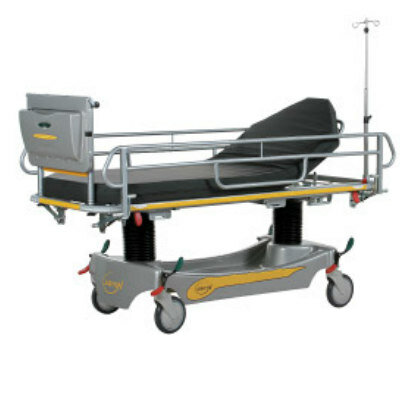Novel Coating Extends Lifespan of Neural Implants
|
By HospiMedica International staff writers Posted on 09 Jan 2025 |

Neural implants play a vital role in studying the brain and developing treatments for conditions such as Parkinson's disease and clinical depression. These implants electrically stimulate, block, or record signals from neurons or neural networks within the brain. Neural implants include integrated circuits (ICs), commonly referred to as chips, which are built on silicon. To function properly within the human body, these implants need to be both small and flexible. For long-term use, especially in chronic treatment and research, the durability of these implants is essential. However, the body's internal environment is corrosive, raising concerns about the longevity of silicon ICs. Researchers have now addressed this issue by studying the degradation mechanisms of silicon ICs in the body and applying a soft coating of PDMS (polydimethylsiloxane) elastomers, which create body-fluid barriers to protect the implants over time. This innovation not only extends the life of implantable ICs but also significantly expands their potential applications in the biomedical field.
A research team from Delft University of Technology (Delft, The Netherlands) assessed the electrical and material performance of chips from two different manufacturers over one year using accelerated in vitro and in vivo studies. They used bare silicon IC structures, which were coated with soft PDMS elastomers to create protective barriers that shield the chips from body fluids. The chips in the study were partially coated with PDMS, resulting in two distinct regions: a "bare die" region and a "PDMS-coated" region. During the in vitro study, the chips were exposed to hot salt water and subjected to electrical biasing (direct current exposure). The chips were periodically monitored, and the results, published in Nature Communications, demonstrated stable electrical performance, indicating that the chips remained functional even when directly exposed to bodily fluids.
When the chips were analyzed for material degradation, it was found that the bare regions experienced significant degradation, while the PDMS-coated areas showed minimal degradation. This result demonstrates that PDMS is a highly effective encapsulant for implants intended for long-term use. These findings are expected to guide the design of advanced chip-scale active bioelectronic implants, which can be used in minimally invasive brain-computer interfaces and long-term neuroscientific research. Based on these new insights, the researchers propose guidelines that could enhance the longevity of implantable chips, further broadening their applications in the biomedical sector.
"Miniaturized neural implants have enormous potential to transform healthcare, but their long-term stability in the body is a major concern. Our research not only identifies key challenges but also provides practical guidelines to enhance the reliability of these devices, bringing us closer to safe and long-lasting clinical solutions," said Dr. Vasiliki (Vasso) Giagka, who led the study. “Our findings demonstrate that bare-die silicon chips, when carefully designed, can operate reliably in the body for months. By addressing long-term reliability challenges, we are opening new doors for miniaturized neural implants and advancing the development of next-generation bioelectronic devices in clinical applications.”
Latest Surgical Techniques News
- Pioneering Sutureless Coronary Bypass Technology to Eliminate Open-Chest Procedures
- Intravascular Imaging for Guiding Stent Implantation Ensures Safer Stenting Procedures
- World's First AI Surgical Guidance Platform Allows Surgeons to Measure Success in Real-Time
- AI-Generated Synthetic Scarred Hearts Aid Atrial Fibrillation Treatment
- New Class of Bioadhesives to Connect Human Tissues to Long-Term Medical Implants
- New Transcatheter Valve Found Safe and Effective for Treating Aortic Regurgitation
- Minimally Invasive Valve Repair Reduces Hospitalizations in Severe Tricuspid Regurgitation Patients
- Tiny Robotic Tools Powered by Magnetic Fields to Enable Minimally Invasive Brain Surgery
- Magnetic Tweezers Make Robotic Surgery Safer and More Precise
- AI-Powered Surgical Planning Tool Improves Pre-Op Planning
- Novel Sensing System Restores Missing Sense of Touch in Minimally Invasive Surgery
- Headset-Based AR Navigation System Improves EVD Placement
- Higher Electrode Density Improves Epilepsy Surgery by Pinpointing Where Seizures Begin
- Open-Source Tool Optimizes Placement of Visual Brain Implants
- Easy-To-Apply Gel Could Prevent Formation of Post-Surgical Abdominal Adhesions
- Groundbreaking Leadless Pacemaker to Prevent Invasive Surgeries for Children
Channels
Critical Care
view channel
Ingestible Smart Capsule for Chemical Sensing in the Gut Moves Closer to Market
Intestinal gases are associated with several health conditions, including colon cancer, irritable bowel syndrome, and inflammatory bowel disease, and they have the potential to serve as crucial biomarkers... Read moreNovel Cannula Delivery System Enables Targeted Delivery of Imaging Agents and Drugs
Multiphoton microscopy has become an invaluable tool in neuroscience, allowing researchers to observe brain activity in real time with high-resolution imaging. A crucial aspect of many multiphoton microscopy... Read more
Novel Intrabronchial Method Delivers Cell Therapies in Critically Ill Patients on External Lung Support
Until now, administering cell therapies to patients on extracorporeal membrane oxygenation (ECMO)—a life-support system typically used for severe lung failure—has been nearly impossible.... Read morePatient Care
view channel
Portable Biosensor Platform to Reduce Hospital-Acquired Infections
Approximately 4 million patients in the European Union acquire healthcare-associated infections (HAIs) or nosocomial infections each year, with around 37,000 deaths directly resulting from these infections,... Read moreFirst-Of-Its-Kind Portable Germicidal Light Technology Disinfects High-Touch Clinical Surfaces in Seconds
Reducing healthcare-acquired infections (HAIs) remains a pressing issue within global healthcare systems. In the United States alone, 1.7 million patients contract HAIs annually, leading to approximately... Read more
Surgical Capacity Optimization Solution Helps Hospitals Boost OR Utilization
An innovative solution has the capability to transform surgical capacity utilization by targeting the root cause of surgical block time inefficiencies. Fujitsu Limited’s (Tokyo, Japan) Surgical Capacity... Read more
Game-Changing Innovation in Surgical Instrument Sterilization Significantly Improves OR Throughput
A groundbreaking innovation enables hospitals to significantly improve instrument processing time and throughput in operating rooms (ORs) and sterile processing departments. Turbett Surgical, Inc.... Read moreHealth IT
view channel
Printable Molecule-Selective Nanoparticles Enable Mass Production of Wearable Biosensors
The future of medicine is likely to focus on the personalization of healthcare—understanding exactly what an individual requires and delivering the appropriate combination of nutrients, metabolites, and... Read more
Smartwatches Could Detect Congestive Heart Failure
Diagnosing congestive heart failure (CHF) typically requires expensive and time-consuming imaging techniques like echocardiography, also known as cardiac ultrasound. Previously, detecting CHF by analyzing... Read moreBusiness
view channel
Expanded Collaboration to Transform OR Technology Through AI and Automation
The expansion of an existing collaboration between three leading companies aims to develop artificial intelligence (AI)-driven solutions for smart operating rooms with sophisticated monitoring and automation.... Read more
















